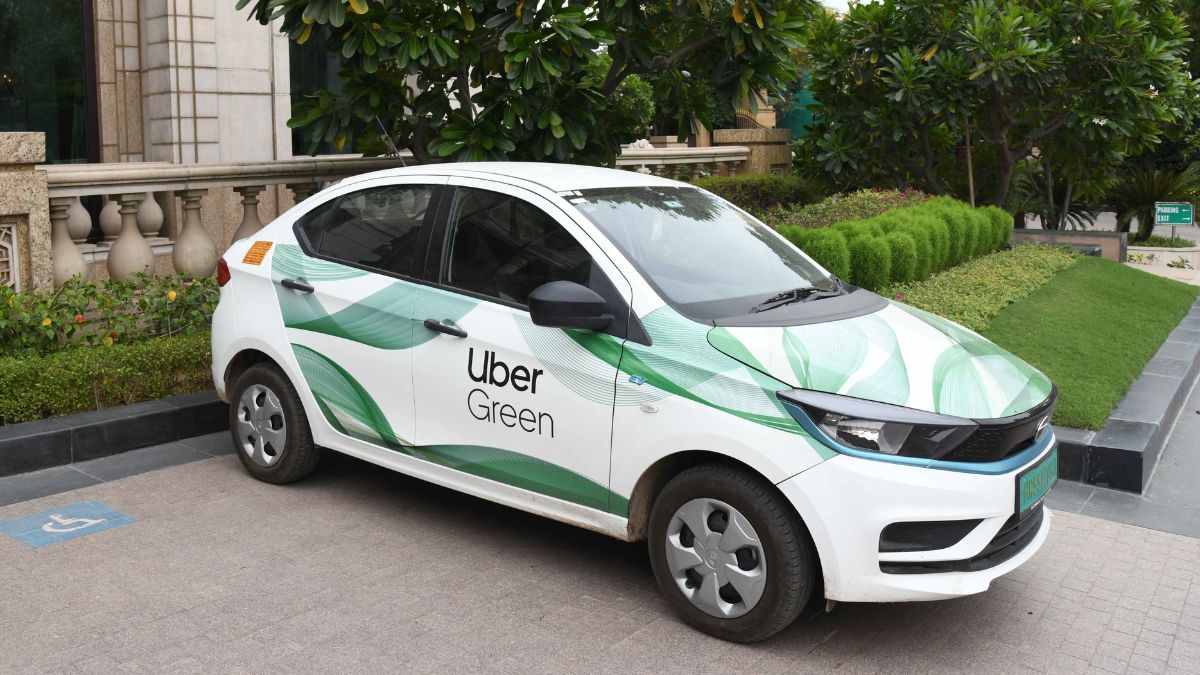Say goodbye to 3x surge pricing and ride cancellations as Centre announces new guidelines for cab aggregators
 A file photo of an Uber Green cab | Sanjay Ahlawat
A file photo of an Uber Green cab | Sanjay Ahlawat
The days of cabs cancelling on you after they ask you the destination for the ride are coming to an end. The latest ‘Motor Vehicle Aggregator Guidelines 2025’ by the Ministry of Road Transport and Highways (MoRTH) provides comprehensive instructions to Uber, Ola Cabs, Rapido and the like in a bid to make cab hailing more commuter-oriented.
The latest instructions, which effectively replace the earlier guidelines of 2020, on passenger safety, including women, children and divyangjan (differently-abled persons).
The guidelines also set clear instructions to aggregators for fair wages to drivers, their welfare, and onboarding. Moreover, MoRTH doubles down on a “non-discrimination policy”, demanding that aggregators treat onboarded motor vehicles by drivers at parity with their own vehicles.
However, the ministry set strict guidelines regarding booking cancellations.
“On cancellation of a booking by a driver after accepting a journey on the app, a penalty of 10 per cent of the fare not exceeding ₹100, shall beimposed where such cancellation is made without a reason identified as valid by the aggregator and duly and specifically mentioned on its website and app,” read the official guidelines sent to all state governments.
The cancellation rules are not just applicable to drivers. Certain passengers who cancel rides out of the blue might need to shell out more money now.
“On cancellation of a booking by passenger after booking a journey on the app, a fee of 10 per cent of the fare not exceeding ₹100, shall be collected, when such cancellation is made without a valid reason and duly and specifically mentioned on the website and app of the aggregator,” it further stated.
Surge pricing cap
Commuters can now wave goodbye to exorbitant surge prices with a wave of regulations on fares. According to the latest guidelines, the state government-notified fare for each category of vehicles would be the base fare chargeable to the passenger.
However, to compensate for “dead mileage” when drivers ride empty while picking up passengers, the ministry changed the minimum base fare chargeable to 3km.
There are also caps on discounts as well as surge charges. “The aggregator shall be permitted to charge a minimum of 50 per cent lower than the base fare and a maximum dynamic pricing of two times the base fare,” it read. This would come as a relief to commuters in cities like Pune and Thiruvananthapuram, where passengers often complain about massive surge pricing, sometimes three to four times the usual rate.
Apart from these, a major change in the guidelines involved the ministry’s push to include more electric vehicles and other sustainable emission automobiles into the aggregator’s fleet. “The state government may direct aggregators to incrementally, on an annual basis, increase the percentage of electric, alternate fuel or zero emission vehicles in their fleet,” read the instructions, later stating, “The aggregator shall mandatorily adhere to the targets fixed for inclusion of electric vehicles in their fleet.”
Business